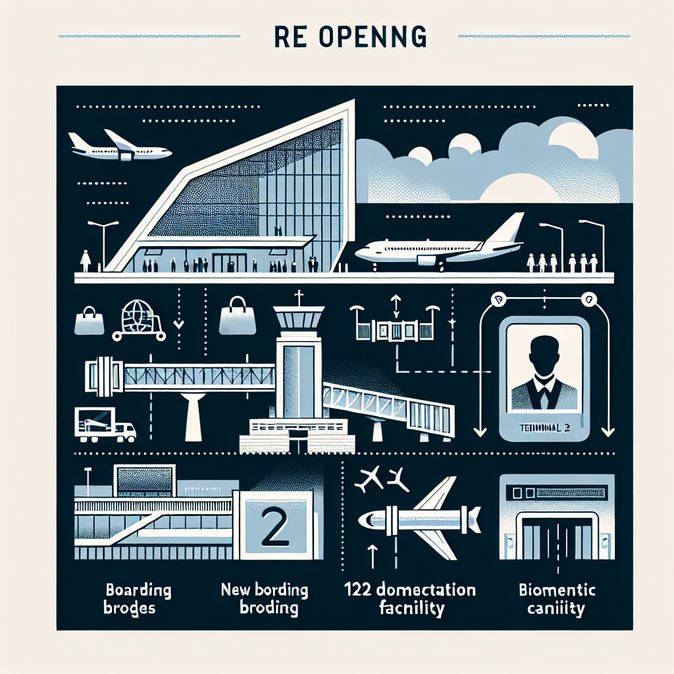
Civil Aviation Minister K. Rammohan Naidu cut the ribbon on Indira Gandhi International Airport’s overhauled Terminal 2 on 25 October. Shut since April for a ₹980-crore facelift, T2 re-enters service on 26 October handling 120 domestic flights a day for Air India (series 1xxx) and IndiGo (series 2xxx).
Upgrades: The 40-year-old structure now features six autonomous boarding bridges imported from South Korea, 24 self-bag-drop kiosks, biometric DigiYatra e-gates, larger skylights for natural light and fully tactile way-finding for reduced-mobility passengers. Airside, apron reconfiguration allows Code C stands to be converted to flexible Code E, supporting wide-body diversions during fog.
Strategic context: Delhi Airport handled 72 million passengers in FY 2024–25 and is targeting 100 million by 2027. Re-opening T2 de-compresses Terminal 1, where expansion works continue, and gives DIAL headroom to court more international transfer traffic once bilateral seat caps are relaxed.
Business-traveller benefits: • Shorter queues via DigiYatra facial-biometric flow;
• 20 minute kerb-to-gate goal with common-use self-service (CUSS) kiosks;
• Segregated priority lane for FTI-TTP enrollees. Corporates should update travel alerts—some flights previously using T1/T3 have shifted to T2.
Environmental note: DIAL claims the renovation improves energy efficiency 17 % through LED lighting and upgraded HVAC. Multinationals tracking Scope 3 emissions can log the reduced terminal energy intensity in sustainability reports.
Upgrades: The 40-year-old structure now features six autonomous boarding bridges imported from South Korea, 24 self-bag-drop kiosks, biometric DigiYatra e-gates, larger skylights for natural light and fully tactile way-finding for reduced-mobility passengers. Airside, apron reconfiguration allows Code C stands to be converted to flexible Code E, supporting wide-body diversions during fog.
Strategic context: Delhi Airport handled 72 million passengers in FY 2024–25 and is targeting 100 million by 2027. Re-opening T2 de-compresses Terminal 1, where expansion works continue, and gives DIAL headroom to court more international transfer traffic once bilateral seat caps are relaxed.
Business-traveller benefits: • Shorter queues via DigiYatra facial-biometric flow;
• 20 minute kerb-to-gate goal with common-use self-service (CUSS) kiosks;
• Segregated priority lane for FTI-TTP enrollees. Corporates should update travel alerts—some flights previously using T1/T3 have shifted to T2.
Environmental note: DIAL claims the renovation improves energy efficiency 17 % through LED lighting and upgraded HVAC. Multinationals tracking Scope 3 emissions can log the reduced terminal energy intensity in sustainability reports.





